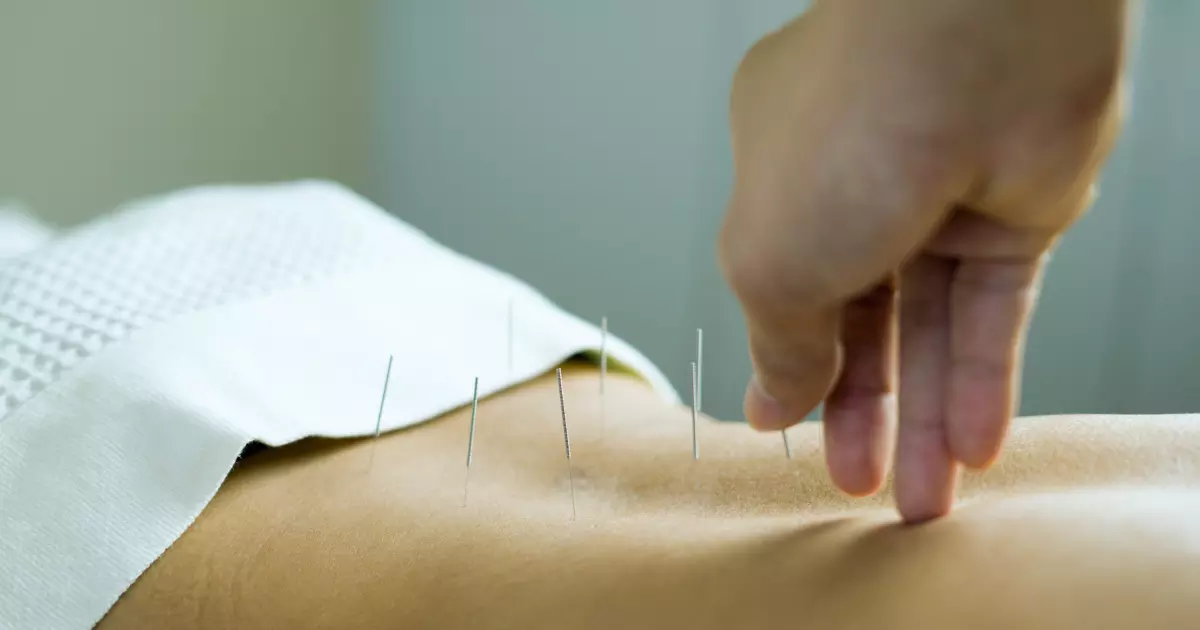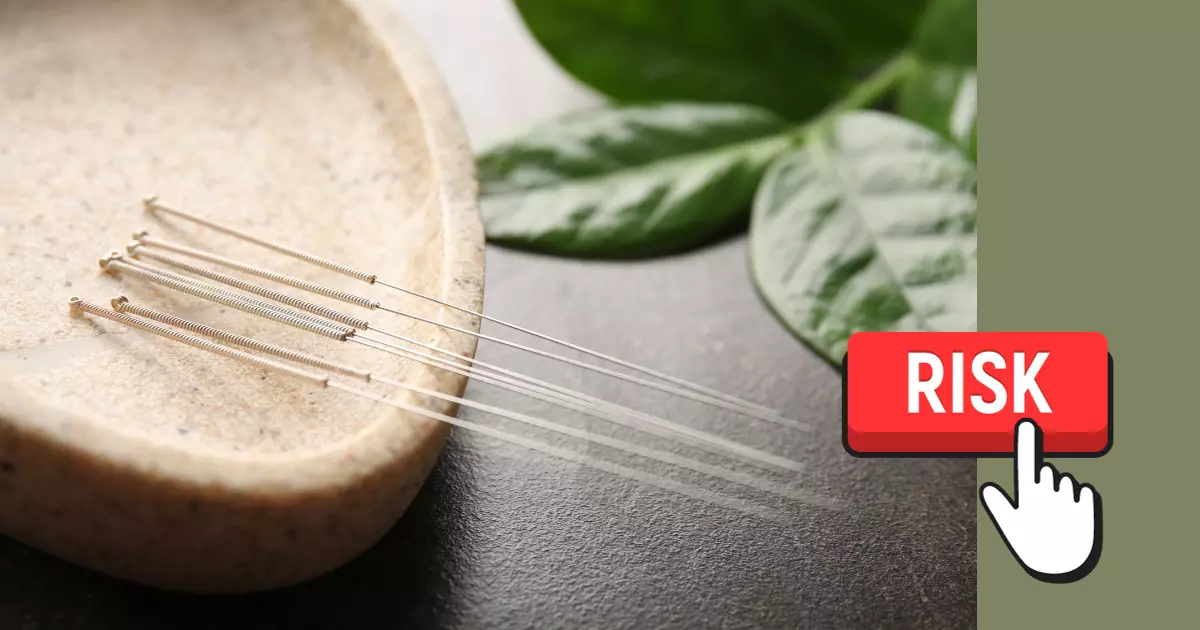Acupuncture for asthma is becoming a popular choice for many looking for different treatments. Asthma affects many people around the world, and it can greatly affect one’s quality of life. The constant asthma symptoms push patients with asthma to explore alternatives aside from conventional treatments. One of these is acupuncture—a traditional Chinese medicine. The role of acupuncture is to restore the body’s internal balance. It offers therapeutic effects to those who are in pain, including people with asthma.
In this comprehensive guide, we will delve into the seven proven benefits of acupuncture for asthma patients. We will also discuss the risks and limitations as well as give you tips on how to get the best acupuncture treatment. Whether you are aiming to breathe a little easier or taking care of a loved one with chronic asthma, this article is for you. Acupuncture might offer a new way to handle asthma’s tough symptoms, so keep on reading.
What is Acupuncture?
Acupuncture is a traditional practice rooted in Chinese medicine. It involves inserting fine needles into specific points on the body. The goal is to restore balance and promote healing. Practitioners believe it stimulates the body’s natural energy, called “Qi”. By inserting needles at specific points, acupuncture aims to rebalance the energy flow.
Today, it is recognized worldwide. It is often used alongside contemporary medicine as an alternative therapy. Aside from needle acupuncture, there are also electro acupuncture and laser acupuncture. Both aim to improve the quality of life in patients and harness the same beneficial effects but through varied techniques.
How Acupuncture Works: Breaking It Down?
Acupuncture is a cornerstone of traditional Chinese medicine, yet its workings often feel shrouded in mystery. At its core, acupuncture involves the insertion of fine needles into strategic points on the body. These points, known as meridians, are believed to be pathways for the flow of Qi, or life force. By targeting these pathways, acupuncture aims to restore a balance of energy throughout the body.
The concept of Qi might be foreign to many, especially those accustomed to Western medicine. Qi is viewed as the vital energy that circulates within the body, ensuring our overall well-being. Any disruption or blockage in its flow can lead to health issues. The heart meridian and lung meridian are two crucial paths in which Qi travels, and their optimal function can impact one’s quality of life.
While the effects of acupuncture have been praised by many, skeptics often question its therapeutic effects. In response, medical acupuncture, a more contemporary take, has melded traditional practices with Western medical knowledge. Research suggests that acupuncture can stimulate nerves, muscles, and connective tissue, enhancing blood flow and triggering the body’s natural painkillers.
But how does this differ from Western medicine? The primary distinction lies in the approach. Western medicine often targets the ailment directly, usually with drugs or surgery. Acupuncture, on the other hand, seeks to restore the body’s energy balance, addressing not just the symptoms but the root causes. This holistic approach, combined with herbal medicine, offers a unique way to enhance the body’s natural healing capabilities.
The safety of acupuncture is another aspect that garners attention. While any medical procedure comes with risks. But when conducted by trained professionals, acupuncture is generally considered safe. Many people turn to this alternative medicine, drawn by its promise to improve their quality of life without relying solely on pharmaceutical solutions.
What Causes Asthma?

Asthma manifests as labored breathing and often, reliance on inhalers due to airway inflammation. Its origins traced back to a combination of genetics, environmental factors, and individual triggers.
At its core, asthma involves chronic inflammation, affecting the airways and making them highly sensitive. When these inflamed airways encounter certain triggers, they tighten. This results in classic asthma symptoms: wheezing, shortness of breath, and often, symptoms of cough.
Clinical studies highlight patterns suggesting that individuals with asthmatic family members are at a higher risk. While there is a clear genetic link, it is not solely about genetics. Environmental factors, like exposure to allergens, childhood respiratory infections, or certain occupational hazards, can prompt the onset of asthma in those genetically predisposed.
It is paramount for those living alongside asthmatic individuals to stay informed. Recognizing signs and understanding causes leads to better management. With this knowledge, many explore complementary therapies, including acupuncture for asthma, aiming to address root causes in addition to alleviating symptoms. Ultimately, the objective is to experience fewer asthma attacks and gain a deeper understanding of this multifaceted ailment.
Understanding Asthma: Types and Symptoms
Asthma, a prevalent chronic respiratory condition, affects 27 million people in the U.S. Its intricacies lie in its multiple types and the array of symptoms associated with each. Before delving into treatments, especially emerging ones like acupuncture for asthma, it is crucial to have a comprehensive grasp of the condition’s nuances.
What Are The Different Types of Asthma?
- Allergic Asthma: This is the most common form. It is triggered by allergens in the environment, such as pollen, mold, pet dander, and dust mites. When individuals with allergic asthma inhale these substances, their immune system overreacts, leading to an asthma episode.
- Occupational Asthma: Specific workplaces expose individuals to irritants like chemical fumes, gases, or dust. This exposure can lead to occupational asthma, wherein symptoms flare up due to these irritants. Industries like farming, baking, and chemical manufacturing have a higher incidence of this asthma type.
- Exercise-Induced Bronchoconstriction (EIB): Contrary to popular belief, EIB is not just for athletes. Anyone can experience asthma symptoms after intensive physical exertion. It is crucial to differentiate between regular EIB and symptoms exacerbated by exercise in someone with existing asthma.
- Cough-Variant Asthma: As the name suggests, the primary symptom here is a chronic cough. While it may seem less severe, it can be quite disruptive. This type often goes undiagnosed, as many disregard the persistent cough.
- Nocturnal Asthma: Asthma symptoms that worsen at night can be a sign of nocturnal asthma. The reasons can vary from reclining positions to cooler nighttime air, leading to bronchial constriction.
- Steroid-Resistant Asthma: A small fraction of asthma patients don’t respond to the primary treatment of corticosteroids. Their resistance makes management more challenging.
- Aspirin-Exacerbated Respiratory Disease (AERD): Certain individuals notice that their asthma symptoms flare up after consuming aspirin or NSAIDs. This sensitivity defines AERD.
Each type highlights the heterogeneity of asthma as a condition. They all trace back to the core issue: chronic inflammation. This inflammation causes the airways to narrow and produce excess mucus, leading to typical asthma symptoms.
What Are The Symptoms of Asthma?
- Shortness of Breath: Often more pronounced during physical activity or nighttime.
- Frequent Coughing: Especially if it becomes chronic, persistent coughing can signify asthma, even more so in cough-variant asthma.
- Wheezing: This high-pitched whistling sound is noticeable when breathing, especially during exhalation.
- Chest Tightness: Many describe it as a heavy weight or pressure on the chest, causing discomfort.
- Increased Mucus Production: Excess mucus can obstruct the airways, intensifying cough symptoms and breathing difficulty.
- Difficulty Sleeping: Asthma symptoms can flare up at night, disrupting sleep.
Recognizing these symptoms early on can be life-saving. An asthma attack or episode sees a significant intensification of these symptoms. The airways swell more, narrowing further, and can even block airflow entirely.
As alternative treatments gain traction, acupuncture for asthma is being closely observed. Preliminary studies suggest its potential in managing symptoms, particularly in cough-variant asthma. This growing interest necessitates an understanding of asthma in its entirety.
Asthma’s multifaceted nature calls for a holistic understanding. The more informed patients and clinicians are, the better they can navigate its challenges. As treatments evolve and diversify, with acupuncture and other holistic approaches entering mainstream discourse, understanding asthma’s types and symptoms is foundational.
What is The Difference Between Acupuncture for Asthma and Conventional Treatments?
When dealing with a condition as challenging as asthma, patients often seek various avenues for relief. Both conventional treatments and acupuncture have shown promise in managing asthma symptoms. Here’s a comparative look at the two approaches:
Acupuncture for Asthma:
- Holistic Approach. Acupuncture aims to balance the body’s energy as the ultimate treatment for asthma.
- Natural Pain Relief. Acupuncture stimulates nerves, muscles, and connective tissues. This technique boosts blood flow and activates the body’s natural painkillers.
- Relaxation. Patients often report a sense of relaxation during and after the treatment of asthma. This reduces the stress-induced asthma symptoms.
- Reduced Side Effects. Acupuncture, when done correctly, has minimal risks.
Conventional Treatments:
- Bronchodilators. Often used in inhalers. They work to relax muscles surrounding the airways, allowing easier breathing. It is usually used for immediate relief during an asthma attack.
- Inhaled Corticosteroids. These reduce inflammation in the airways. A long-term preventive solution that lessens the frequency and severity of asthma attacks.
- Leukotriene Modifiers. Oral medications that block inflammatory chemicals, helping prevent asthma symptoms.
- Immunotherapy. Immunotherapy can be done through a regular injection or under-the-tongue tablet. It aims to gradually increase a person’s tolerance to asthma triggers
Comparative Analysis:
- Efficiency. Conventional treatments are often rapid-acting, especially during asthma attacks. Acupuncture, while beneficial, may not offer the immediate relief needed during severe flare-ups.
- Side Effects. Common asthma medications are increased heart rate, high blood pressure, or mood changes. Acupuncture is generally side-effect-free. But some might experience slight bruising or minimal discomfort at the needle site.
- Long-Term Approach. Conventional treatments usually focus on symptom relief. Acupuncture looks at long-term wellness, increasing its effective rate. It seeks to reduce the frequency and severity of asthma episodes.
- Accessibility. Conventional treatments are widely available and are often the first line of defense. Acupuncture might not be as readily available in all regions. You might require also more research to find a qualified practitioner or need ethical approval.
The choice between acupuncture and conventional treatments isn’t binary. Many adults with asthma opt for a combined approach. This is to leverage the benefits of both methods. They not only manage their asthma symptoms but also tap into the holistic benefits acupuncture offers.
One’s unique circumstances should be considered before making a decision. It is important to know the severity of asthma symptoms and personal preferences. Both methods have their strengths. Understanding the core difference between the two promotes informed decisions. Whatever the choice, the primary goal remains the same. This is to improve the quality of life for people with asthma.
5 Proven Benefits of Acupuncture for Asthma

Acupuncture for asthma has steadily gained recognition as an alternative medicine, complementing the usual treatment of asthma. Its therapeutic effects offer a unique approach to addressing chronic asthma and related pulmonary diseases. As more people seek complementary therapy options, understanding the benefits of acupuncture on asthma becomes essential. Here are some proven benefits of acupuncture for asthma backed with clinical studies.
Reduces The Frequency of Asthma Attacks
One of the most profound benefits of using acupuncture for asthma is its ability to lessen the number of asthma episodes, especially for patients with cough variants. The therapy specifically targets conditions like chronic bronchitis, often linked with asthma, and helps in combating other pulmonary diseases. By focusing on inflammatory cells, which often spark asthma bouts, acupuncture ensures better respiratory health. A particular clinical study about acupuncture highlighted its success among elderly patients, showcasing fewer asthma-related incidents after undergoing acupuncture treatments. This lends weight to acupuncture’s standing in clinical practice and underscores its versatility across different age brackets.
Improves Lung Function
A remarkable benefit of acupuncture for asthma lies in its capacity to bolster lung performance. Chronic cough, a common irritant for many, often diminishes airway function indices, marking a decline in pulmonary health. However, acupuncture stands out as a formidable treatment for cough, specifically in cases of Cough-Variant Asthma. This specialized form of asthma manifests primarily through symptoms of cough rather than wheezing. A study on acupuncture treatment, using a fixed-effects model, focusing on patients with Cough Variants highlighted how medical acupuncture considerably reduced the frequency and intensity of these coughing episodes. By targeting specific points, acupuncture on asthma brings relief, reinforcing lung function and lessening the grip of persistent coughs.
Reduces Dependency on Inhalers and Medications
Many asthma patients often lean on inhalers and medications, sometimes multiple times a day. This dependence, while providing relief, isn’t always ideal. Acupuncture for asthma presents a refreshing alternative. Clinical studies have shown that the effectiveness of acupuncture therapy goes beyond just symptom relief. It targets the root of the problem – chronic inflammation. By addressing inflammatory mediators, acupuncture can potentially decrease the body’s reliance on medications.
In some cases, elderly patients, who often face challenges with medication management, have noted a decrease in cough symptoms after undergoing acupuncture. This has translated to a reduced need for treatments specifically for cough. Furthermore, the pairing of acupuncture with herbal medicine can further enhance these benefits. The synergistic effect of the two can amplify the overall effective rate, providing patients with a holistic approach to managing their asthma.
It’s not about replacing one treatment with another. Instead, acupuncture offers a complementary strategy, possibly minimizing the need for frequent medication use. In a world where every breath counts, this ancient therapy might just be the key to a more natural and sustainable way to manage asthma.
Alleviates Associated Symptoms like Anxiety
Living with asthma is more than just managing wheezes and coughs. The constant vigilance required to avoid triggers and the looming threat of a sudden attack can lead to significant emotional strain. This is where the role of acupuncture becomes crucial, extending beyond the physical and delving into the psychological realm associated with asthma.
In many clinical settings, patients with asthma have reported decreased anxiety levels after undergoing acupuncture sessions. This is attributed to the body’s enhanced capability to manage stress and the therapeutic effects of acupuncture on the central nervous system.
For those grappling with asthma, the journey is not solely about ensuring open airways. The emotional weight carried needs addressing too. Acupuncture for asthma offers a comprehensive approach, tackling both the evident respiratory challenges and the silent emotional battles that come with chronic conditions.
Boosts the Immune System
Acupuncture, revered for centuries, holds a special place in alternative medicine due to its holistic approach to health. While most associate acupuncture with pain relief or stress management, its influence extends to the body’s natural defense system – the immune system. When it comes to managing conditions like asthma, a robust immune response can be a game-changer.
Read also: How to Incorporate Holistic Medicine Into Your Life
By inserting needles at precise points, it stimulates the body’s healing mechanisms. This stimulation enhances the production of immune-modulation factors, fortifying the body against external pathogens and internal imbalances.
For asthma patients, this immune boost means the body becomes more adept at warding off respiratory infections, common triggers for asthma flare-ups. Furthermore, a strengthened immune system reduces inflammation, a key culprit in narrowing airways and causing asthma symptoms.
Incorporating acupuncture for asthma into one’s treatment regimen does more than just address respiratory challenges. It equips the body with enhanced defenses, offering a dual approach: alleviating immediate symptoms and building resilience against future triggers.
What Are The Risks and Limitations of Acupuncture

Acupuncture has gained recognition in the West for its potential therapeutic effects, especially concerning conditions like asthma. Many turn to acupuncture for asthma seeking a more holistic approach, driven by the numerous benefits it promises. While there’s undeniable value in this age-old practice, it is important to recognize its limitations and inherent risks.
The field of acupuncture, like any medical discipline, is vast and complex. Multiple systematic reviews and clinical studies have delved into acupuncture’s effective rate in managing various ailments. When it comes to asthma, while many individuals report significant relief, results can vary. Clinical studies often underscore the positive outcomes, but they also emphasize the need for controlled settings and expert practitioners. This brings us to the first essential point: the importance of seeking trained and experienced acupuncturists.
Even in the hands of the most skilled professionals, there’s no one-size-fits-all solution. Some patients might experience immediate relief, while others might need multiple sessions before noting any tangible change. Moreover, certain individuals might not benefit at all due to the individualistic nature of body responses.
Even though acupuncture is generally considered safe when conducted by trained professionals, potential side effects exist. Some people might experience mild pain, bleeding, or bruising at the needle sites. More rarely, there’s a risk of more serious side effects like infections, especially if sterile techniques aren’t adhered to rigorously.
While acupuncture can indeed play a role in managing asthma symptoms, it should not be viewed as a complete replacement for traditional treatments or medications, especially in severe cases. Acupuncture should ideally function as a complementary therapy, working in tandem with other treatments, rather than replacing them.
Looking ahead, future studies are poised to delve deeper into the specific mechanisms through which acupuncture assists asthma patients. These studies might shed more light on optimal techniques, specific acupuncture points for asthma, and more. But until such comprehensive data is available, it is crucial to approach acupuncture with an open yet discerning mind.
Making the Decision: What to Consider When Choosing Acupuncture for Asthma?
Navigating the myriad treatment options for asthma can be daunting. As holistic therapies gain traction, more people consider acupuncture for asthma. But, like any therapeutic approach, it requires careful consideration. If you’re pondering this route, there are key factors to weigh.
Firstly, understand the severity and type of asthma you or your loved one is grappling with. Asthma varies in intensity and manifestation. Some experience sporadic flare-ups, while others deal with persistent symptoms. Knowing where you stand helps in gauging when acupuncture might be most beneficial. For instance, those with milder symptoms seeking complementary treatments might find acupuncture especially valuable. However, for those with more severe cases, it is essential to realize acupuncture may serve as a supplementary treatment and not a primary solution.
Secondly, a conversation with your primary healthcare provider is necessary. While embracing alternative treatments, it is pivotal to ensure they integrate seamlessly with your existing care plan. Your doctor can provide insights on the compatibility of acupuncture with your current regimen and highlight potential synergies or concerns.
Upon deciding to explore acupuncture, the clinic and practitioner’s choice becomes paramount. Here are some factors to keep in mind:
- Clinic Reputation: The credibility of the clinic is foundational. Research potential clinics, focusing on their specialties and approaches. A clinic with a solid reputation in treating respiratory issues or asthma is preferable.
- Practitioner’s Experience: Acupuncture, as an art and science, flourishes in the hands of seasoned practitioners. Look for professionals with a track record in treating asthma or related respiratory conditions. Their nuanced understanding of acupuncture points related to respiratory health can make a marked difference.
- Patient Testimonials: Personal stories often paint the clearest picture. Delve into testimonials and reviews to gather insights from those who’ve walked this path. While every individual’s experience is unique, patterns in patient feedback can provide a reliable gauge.
Remember that it is not a decision to make lightly. Understand your specific asthma profile, consult with healthcare experts, and choose your acupuncture provider with discernment.
In the evolving landscape of asthma treatments, where tradition meets modernity, ensure you’re making informed, holistic decisions. Acupuncture for asthma can be a transformative experience, but its success hinges on the choices we make leading up to it.
How to Get The Best Acupuncture Treatment for Asthma?
Venturing into the world of acupuncture for asthma demands thorough preparation to maximize benefits. The holistic approach of acupuncture offers a refreshing perspective on asthma management. However, its efficacy lies in personalization. Just as every asthma case has its nuances, so should the acupuncture treatment. Navigating this terrain requires clear steps, ensuring a tailored experience that meets individual needs. With a roadmap in hand, embracing this ancient practice can lead to profound changes in asthma management and overall well-being.
Research Potential Acupuncturists
Selecting the right acupuncturist is pivotal for effective asthma management. Begin by focusing on practitioners experienced in treating asthma. Their specialized training can offer more targeted relief. Always verify their credentials. A licensed or certified acupuncturist signifies adherence to strict standards, ensuring safe and proficient treatment. Dive into reviews and testimonials, especially from fellow asthma patients. Their firsthand experiences offer valuable insights into the practitioner’s approach and efficacy. Taking these steps in research solidifies a foundation for a promising acupuncture for asthma journey.
Initial Consultation
At your initial consultation, transparency is key. Discuss your asthma history, current medications, and known triggers. Engage the acupuncturist about their specific experience in managing acupuncture for asthma and any notable success stories. Grasp a clear understanding of the proposed treatment plan, including the frequency of sessions. This consultation provides a roadmap for tailored care and fosters trust between you and the practitioner, ensuring a journey towards better respiratory health.
Ask About Tailored Treatment Plans
When exploring acupuncture for asthma, ensure your practitioner avoids a “one-size-fits-all” method. Asthma varies in triggers and intensity among individuals, necessitating a customized approach. It is vital to discuss specific acupuncture points and techniques the acupuncturist plans to employ for your asthma relief. A practitioner receptive to tailored treatment indicates a thorough understanding and dedication to addressing your unique respiratory challenges.
Continual Monitoring and Feedback
For those delving into acupuncture for asthma, maintaining a symptom diary proves invaluable. This tool captures changes, both subtle and pronounced, in your asthma condition. Regular dialogue with your acupuncturist about recorded observations or emerging concerns is pivotal. This two-way communication facilitates potential adjustments in the treatment strategy. Remember, your feedback shapes the journey, ensuring the acupuncture treatment remains attuned to your respiratory needs.
Stay Informed on Conventional Asthma Treatments
Managing asthma means always being in the know. It is crucial to keep up with the latest asthma treatments. While considering acupuncture for asthma, don’t overlook standard medical options. Always talk to your doctor before mixing treatments. Combining acupuncture with regular treatments can offer a well-rounded approach to handling asthma.
Post-Treatment Care
Upon completing an acupuncture session tailored for asthma, the steps you take next are crucial. Adhering to aftercare suggestions, from relaxation exercises to dietary adjustments, can enhance the effectiveness of the treatment. Observe your body’s reactions closely in the hours and days following the session. It’s essential to relay any unusual responses to your acupuncturist. Ensuring proper post-treatment care not only amplifies the benefits of acupuncture for asthma but also fosters a harmonious balance between age-old techniques and contemporary health practices.
What to Expect in an Acupuncture Session at Inner Ocean Center for Healing?
Embarking on an acupuncture journey, especially when seeking relief from asthma, can be both an exciting and nerve-wracking experience. At Inner Ocean Center for Healing, we ensure that from the initial consultation to the critical aftercare phase, you are guided, supported, and informed.
Consultation Phase: Every journey starts with a conversation. Our expert acupuncturists begin with an in-depth consultation to understand your asthma history, triggers, and current health status. This step is crucial; it allows the practitioner to tailor the acupuncture session for optimal results.
Treatment Plan: Based on your unique needs, a personalized treatment plan is curated. At Inner Ocean Center for Healing, we pride ourselves on avoiding a “one-size-fits-all” approach. Instead, we focus on specific acupuncture points and techniques designed to provide asthma relief.
The Acupuncture Session: The heart of your visit, the session itself, is a serene experience. Thin needles, virtually painless, are inserted into specific points on your body. While the idea might sound daunting, most clients describe a feeling of relaxation and even a sense of lightness during the procedure.
Post-Session and Aftercare: Once your session concludes, the care doesn’t stop. We ensure you’re equipped with aftercare advice tailored to maximize the benefits of your treatment. This could include relaxation techniques or dietary suggestions, ensuring you stay on a path of healing and relief.
At Inner Ocean Center for Healing, our doors and lines of communication are always open. We understand that venturing into acupuncture, especially for asthma relief, comes with its set of questions and concerns. Whether it’s a minor doubt or a major reservation, our team is here to guide and reassure you.
Moreover, for the skeptics and those surrounded by myths about acupuncture, we welcome you with open arms. Myths, especially when related to health, can deter individuals from seeking beneficial treatments. We’re ready to dispel these misconceptions and present the science, tradition, and success stories that make acupuncture for asthma not just a choice but a preferred alternative for many.
Inner Ocean Center for Healing stands at the intersection of ancient knowledge and modern techniques. We ensure that every individual who walks through our doors leaves with a deeper understanding of their body, asthma, and the profound impact acupuncture can make.
Now, the question is, are you ready to explore this transformative experience? Dive deep into the world of acupuncture with us and discover the relief, balance, and harmony it promises.
Book your session at Inner Ocean Center for Healing now. Experience the blend of tradition, expertise, and care, all geared toward helping you breathe a little easier.


